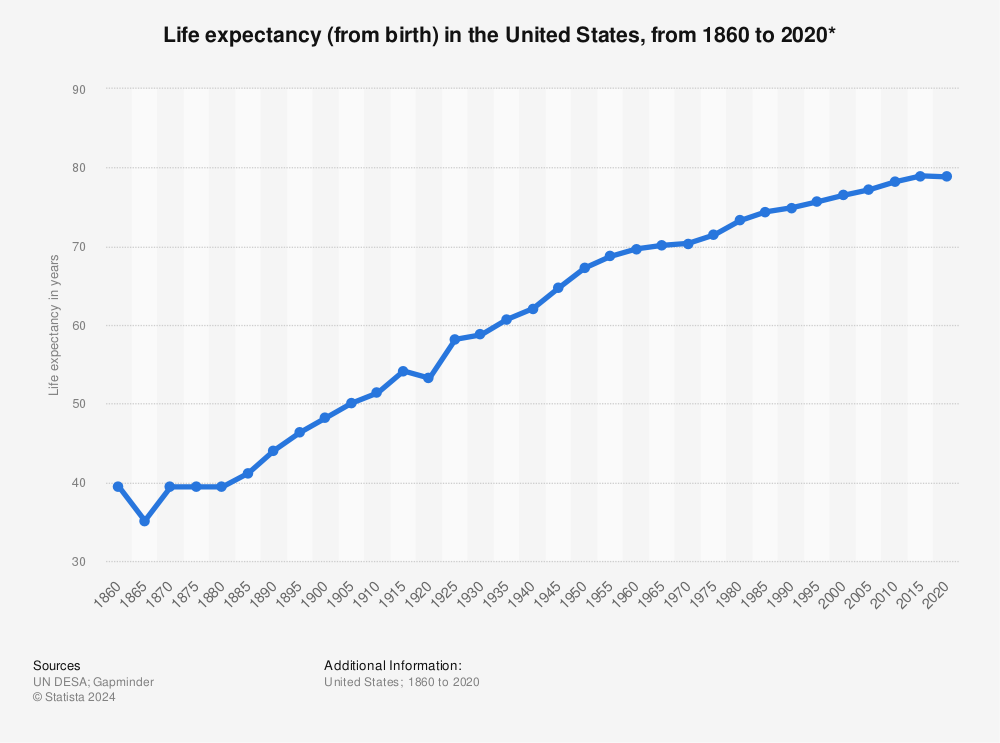For next week, Johnson, ch 4.
This week: The Civil War, Progressivism, World War I, Great Depression

Find more statistics at Statista
The Long Shadow of the Civil War
Two-thirds of Civil War military deaths resulted from disease, not combat. Of those who survived, 30,000 lost limbs.
Pensions: In 1894 military pensions for wounded warriors (mostly Union veterans of the Civil War) accounted for 37% of federal spending.
Start at 1:45
Why no push for national health insurance in the 19th century?Medical education and regulation in the late 19th century. Harvard physiologist Lawrence Henderson: "Sometime between 1910 and 1912 in this country, a random patient, with a random disease, consulting a doctor chosen at random had, for the first time in the history of mankind, a better than fifty-fifty chance of profiting from the encounter”
Progressive Era
- The Social Gospel
- Baby steps on social welfare policy: Children's Bureau and maternal health (Johnson 86) -- not for able-bodied adult males
- Federal Reserve Act of 1913
- 16th Amendment and the income tax (the first Form 1040)
- Mass mobilization
- Financing through "Liberty Bonds"
- Budget Act of 1921
- Espionage Act and Sedition Act -- attacks on civil liberties
- Created many veterans
- The 1918 Pandemic
- Starts among US troops in Kansas
- 50 million dead worldwide at least 675k in the US -- killed far more than WWI combat
- Wartime censorship stifles coverage
- Wilson did not utter one public word even though his own case disabled him.
NativismIn his history of the United States, Wilson described the immigrants of the late 19th century as “men of the lowest class from the south of Italy and men of the meaner sort out of Hungary and Poland, many of them men out of the ranks where there was neither skill nor energy nor any initiative of quick intelligence.”
Calvin Coolidge: “There are racial considerations too grave to be brushed aside for any sentimental reasons. Biological laws tell us that certain divergent people will not mix or blend. The Nordics propagate themselves successfully. With other races, the outcome shows deterioration on both sides.”
Immigration Act of 1924 (Johnson, p. 84). Immigration drops off, especially during the Depression.
The Great Depression Starts
- Stock Market crash
- Panic Selling
- Banks had invested in stocks
- Runs on banks lead to bank failures
- Bank failures dry up credit
- Evaporation of credit leads to business failures
- Smoot-Hawley Tariff
- Agriculture problems and the Dust Bowl -- migrants drive through Claremont on "the Mother Road"



No comments:
Post a Comment